One-day international conference Regions in numbers: connecting diversity
On Tuesday 10 May 2022, Statistics Flanders organises a one-day international conference on Regional Statistics. Regional statistics are becoming increasingly important for a wide range of users. International statistical institutions, such as OECD, Eurostat and the UN increasingly need regional statistics to complement the national picture. Statistics at country level are not always precise enough to get an accurate picture, and to support the devolution of policy competences in federal states. On the other hand, regional statistical institutes are facing a number of challenges to develop high-quality official statistics. The conference will cover a wide range of topics.

Program
In the morning a number of keynote speakers will point out the importance of regional statistics to complement the national picture. Furthermore the Belgian Interfederal Institute of Statistics exists almost 6 years, time to look back at its achievements and its challenges.
Download all presentations below, take a look at the impressions or watch the speakers on our Youtube channel (in Dutch)(opens in new window).
Host of the day: Karolien Weekers
| 09:30 | Welcome with coffee |
| 10:30 | Introduction by Roeland Beerten (in Dutch)(PDF file opens in new window), chief statistician Statistics Flanders |
| 10:45 | Paul Schreyer, Chief Statistician of the OECD and Director of the Statistics and Data Directorate “More granular, more timely: the new statistical landscape (in Dutch)(PDF file opens in new window)” |
| 11:30 | Roeland Beerten, Chief statistician Statistics Flanders |
| 12:00 | Lunch break |
| 13:30 | Parrallel sessions Two parallel sessions will look more closely at regional data from a different perspective. Session 1. Regional Data: working together – Chair: Alastair McAlpine “How to cooperate with other regions and the national statistics service to produce quality regional statistics.” Alastair McAlpine, Chief Statistician Scottish Government (Interim) : A nation within a nation: producing statistics for Scotland within the UK (in Dutch)(PDF file opens in new window) Wolfgang Seifert, researcher Information und Technik-Nordrhein-Westfalen (IT.NRW) & Johan Van der Valk, Coördinator Cross-Border Statistics (CBS): Labour Markets in the border regions of the Netherlands and Germany (in Dutch)(PDF file opens in new window) Bart Delbeke, researcher National Bank of Belgium and Statistics Flanders: Regional distribution of Belgian imports and exports of goods and services (in Dutch)(PDF file opens in new window) Lisa Van Landschoot, demographer Statistics Flanders: Interregional cooperation for official demographic statistics (in Dutch)(PDF file opens in new window)
“How to collaborate to help international institutions such as UN Eurostat or OECD to produce statistics for countries and regions.” Xavier Cuadras Morató, Director of the Statistical Institute of Catalonia (IDESCAT) Haritz Olaeta Goiriena, Basque Institute of Statistics (EUSTAT): Working Group of regional institutes for the production of the regional SDG indicators in Spain (in Dutch)(PDF file opens in new window) Rudy Vannevel, researcher Flemish agency for the environment: Improving international water statistics (in Dutch)(PDF file opens in new window) Isabelle Erauw, Advisor Strategic Policy Support Division of the Education & Training Department: The process to get the International statistics about education (in Dutch)(PDF file opens in new window) Jean-Maurice Frère, Planbureau: Indicators of sustainable development (in Dutch)(PDF file opens in new window) |
| 15:30 | Networking reception with poster sessions of partner organisations |
| 17:00 | End of the conference |
Impressions from the conference
Bio Roeland Beerten
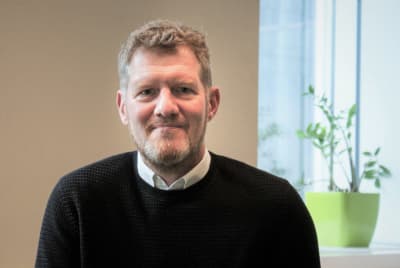
Roeland Beerten is chief statistician for the government of Flanders and head of the Flanders Statistics Authority. He is responsible for implementing official statistics policy as set out in Flemish and international legislation, with the aim of producing and disseminating independent high-quality official statistics for a broad field of users. Before taking up this post Roeland worked in the United Kingdom for twenty years, first at the Office for National Statistics, where he led a number of survey and census programmes, and then at the Royal Statistical Society, where he was a director responsible for policy development for official statistics, statistical education and public relations. He studied sociology and social research methods at the KU Leuven and the KU Brussels, and management and leadership development at the Ashridge Hult Business School.
Bio Paul Schreyer
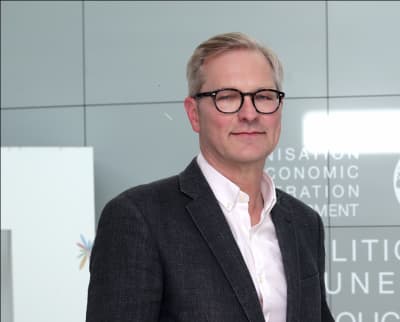
Paul Schreyer was nominated Chief Statistician of the OECD and Director of the Statistics and Data Directorate in 2020. He joined the Organisation in 1988 and held various positions in the (then) Directorates for Science Technology and Industry, Environment and Statistics. Before joining the OECD, he was a research fellow at the IFO Institute for Economic Research in Munich, Germany and Assistant Professor at the University of Innsbruck, Austria. Paul Schreyer holds a Ph.D. in economics. His personal research areas include national accounts, the measurement of capital, productivity, welfare, non-market activities and prices. He is the author of several OECD Manuals and has a record of publications in international journals and books. In 2008-09, he was rapporteur in the Stiglitz-Sen-Fitoussi Commission on the Measurement of Economic Performance and Social Progress.
Bio Bart Delbeke
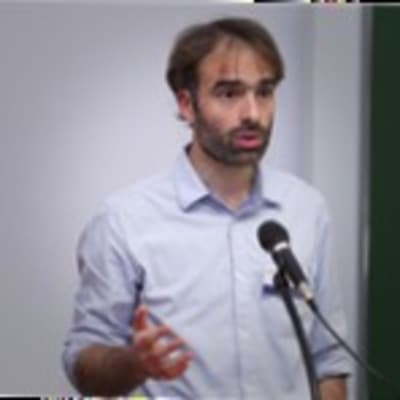
Bart Delbeke (°1978) worked for years as a researcher for the University of Antwerp on various topics, such as labour market and discrimination, co-housing and energy poverty. Since 2019, he has been working at Statistics Flanders where he monitors the import and export of goods and services, as well as the income and expenditure of the police and the fire brigade.
Bio Haritz Olaeta Goiriena

Haritz Olaeta Goiriena has a degree in Economics (Maths Economics) in the University of the Basque Country and a Msc and a Phd in Statistics in the University of Bristol (UK). Over 20 years of experience in official statistics in different fields in the Statistical Office of the Basque Country (Spain). As methodologist worked in Small Area Estimation Modelling and Seasonal Adjustment. Then he moved to Quarterly National Accounts. For the last few years he coordinates the Short Term Business Statistics at Eustat and the SDG statistical indicator system for the Basque Country in coordination with most of the regional statistical offices in Spain.
Bio Isabelle Erauw
Isabelle Erauw is policy advisor in the Strategic Policy Support Division within the Flemish Education & Training Department. She works, among others, in the field of (internationally comparable) education indicators and is, from that perspective, involved in the co-operation with international institutions such as EUROSTAT, OECD and UNESCO.
Bio Jean-Maurice Frère

Jean-Maurice Frère has worked as an analyst in the Task Force Sustainable Development of the Federal Planning Bureau (FPB) since 1998. Prior he worked at KU Leuven for HIVA- Research Institute for Work and Society. He holds two master’s degrees (sociology, quantitative analysis in the social sciences), a bachelor’s degree in philosophy and a post university degree certificate in international relations. At the FPB he contributes to the reporting on Sustainable Development Indicators and to the analyses, evaluations, and scenarios of the federal reports on Sustainable Development, where he primarily focuses on poverty and social inclusion. Also, he has conducted research on the current and prospective evolution of the risk of poverty or social exclusion, on the ecological and socioeconomic impact of the low-carbon transition and on the monitoring of mental health issues and energy poverty. He is a member of the working group ‘Social indicators’ (FPS Social Security), the working group ‘SILC & administrative data‘ (High Council for Statistics) and the federal poverty network of civil servants (PPS Social Integration). He was a Belgian delegate at the Indicators Sub-group of the Social Protection Committee (2002-2016) and since 2021 at the Inter-Agency and Expert Group on Disaster-related Statistics of the UN Statistical Commission.
Bio Johan van der Valk
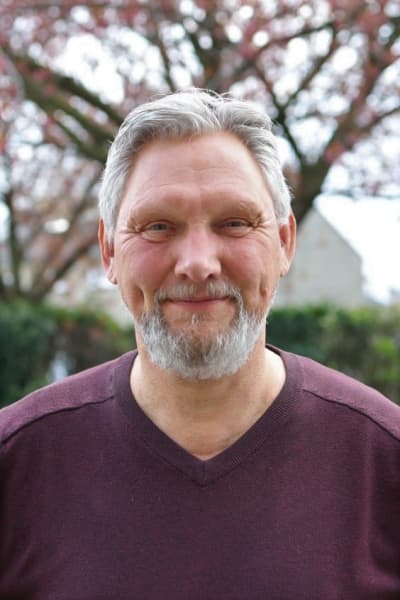
Having worked almost 30 years for Statistics Netherlands , Johan van der Valk is currently developing cross-border statistics. From 2009 to 2013 he was a Seconded National Expert at the Labour Market unit of Eurostat. He is now leading projects to implement the production of cross-border labour market information for the Dutch border regions. In addition, he is involved in the process of building evidence for EU border regions. In this context he was leading the consortium of statistical offices that carried out the pilot project to develop methodology cross-border information as mentioned under the action point 3.10.1 on building evidence in the EC communication ‘Boosting growth and cohesion in EU border regions’.
Bio Karolien Weekers

Karolien Weekers has a PhD in political sciences and has been working for the Flemish administration for 12 years: first at the research centre of the government of Flanders, later the Flemish Statistical Authority. As advisor in official statistics, she, along with her colleague Jo, is responsible for the production and dissemination of the Flemish official statistics. In terms of content, Karolien mainly works on the themes of tourism, economy and education. Since 2020, she is the host of the monthly seminars of Statistics Flanders.
Bio Lisa Van Landschoot
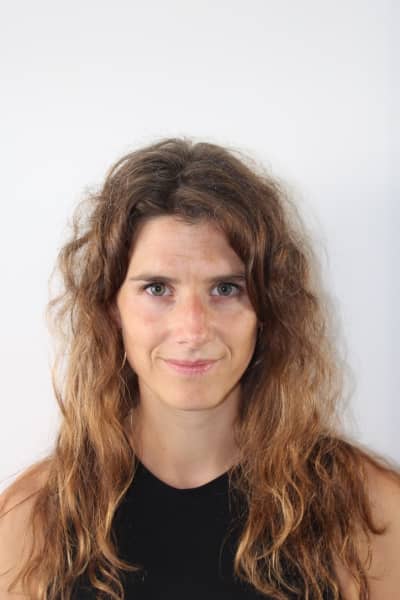
Lisa Van Landschoot is a demographic analyst at the Flemish Statistical Authority (VSA). Her main activities include the analysis, statistical mapping and forecasting of the population of the Flemish Region. Before, Lisa worked at the Vrije Universiteit Brussel (VUB) as a postdoctoral researcher. She obtained a PhD in the field of Sociology (VUB).
Bio Roger Halliday

Roger Halliday is the Scottish Government’s Chief Statistician.He started as Chief Statistician in November 2011 worked as the Chief Data Officer in Scottish Government up to March 2020 when he took a role leading the Government’s Covid Analysis Team. He qualified with a degree in statistics in 1993 from St. Andrews University and joined the Government fast stream as an assistant statistician. He worked for various UK Government Departments and at the Scottish Government in a number of statistical and policy making roles. He currently leads Research Data Scotland, which was established in 2020 to enable innovation in the public good through access and linkage of data around people, places and businesses. He became an honorary Professor at the University of Glasgow in 2019.
Bio Rudy Vannevel

Rudy Vannevel graduated in biology (Ghent University, 1984) and was involved in the water domain ever since. At the Flanders Environment Agency, he started working on biological water quality assessments in the early 1990s. Later on, he worked on integrated water management and the development of water quality plans. For about 20 years, he is the contact for water data reporting to the international authorities.
Bio Xavier Cuadras-Morató

Xavier Cuadras-Morató is the Director of the Statistical Institute of Catalonia (IDESCAT) since 2019. He is also Associate Professor in the Department of Economics and Business at the Universitat Pompeu Fabra (UPF) in Barcelona (currently on leave). He was Director of the International Business School of the Universitat Pompeu Fabra (ESCI-UPF) from 2005 to 2019. He is also Affiliated Professor in the Barcelona School of Economics (BSE). He received a Ph. D. in Economics from the University of York (United Kingdom). He has held visiting positions in the University of Pennsylvania (USA) and University of Rochester (USA). He has published research papers in international journals on diverse subjects (monetary theory and history, health economics, education and the labour market, and political economy). His most recent research is on the economic consequences of the political conflict between Catalonia and Spain on which he has edited the book Catalonia: A New Independent State in Europe? (A debate on secession within the European Union) (Routledge, 2016) and written the book Political independence and the monetary question (A comparison of the cases of Quebec, Scotland and Catalonia) (2019).